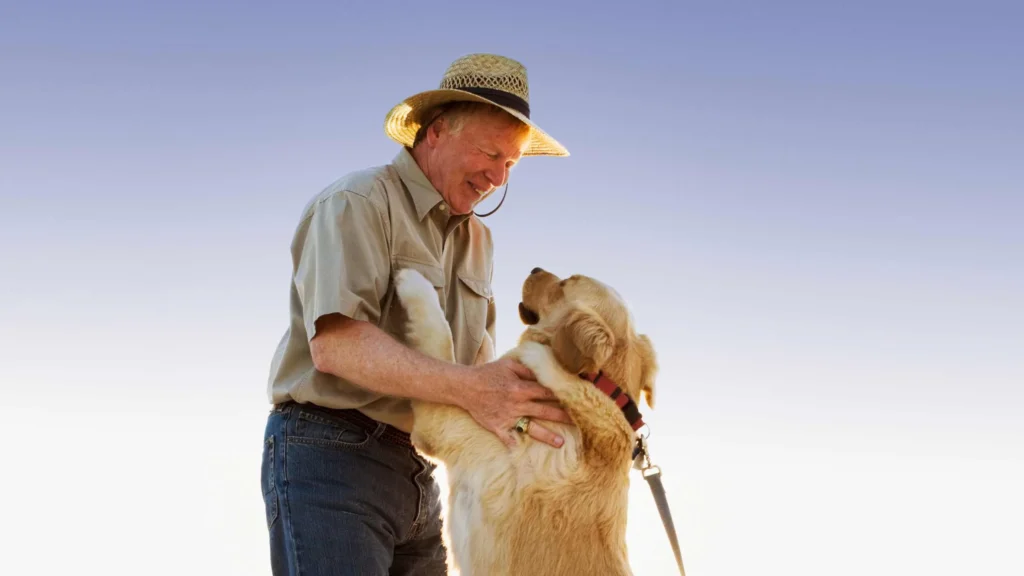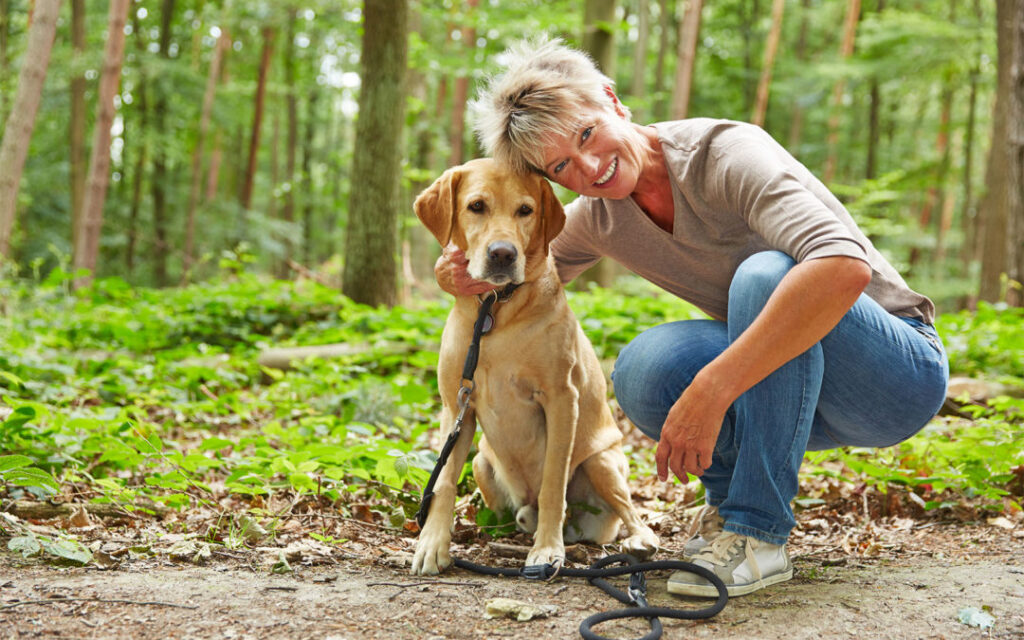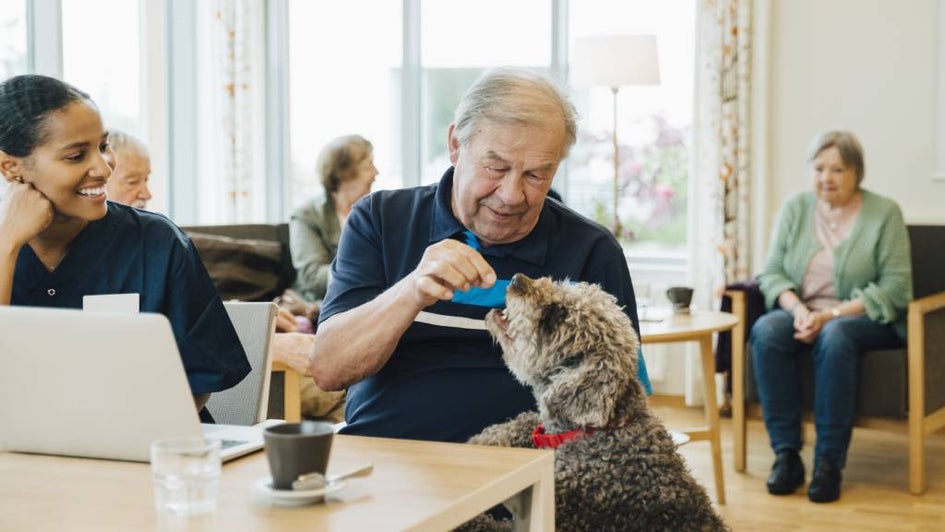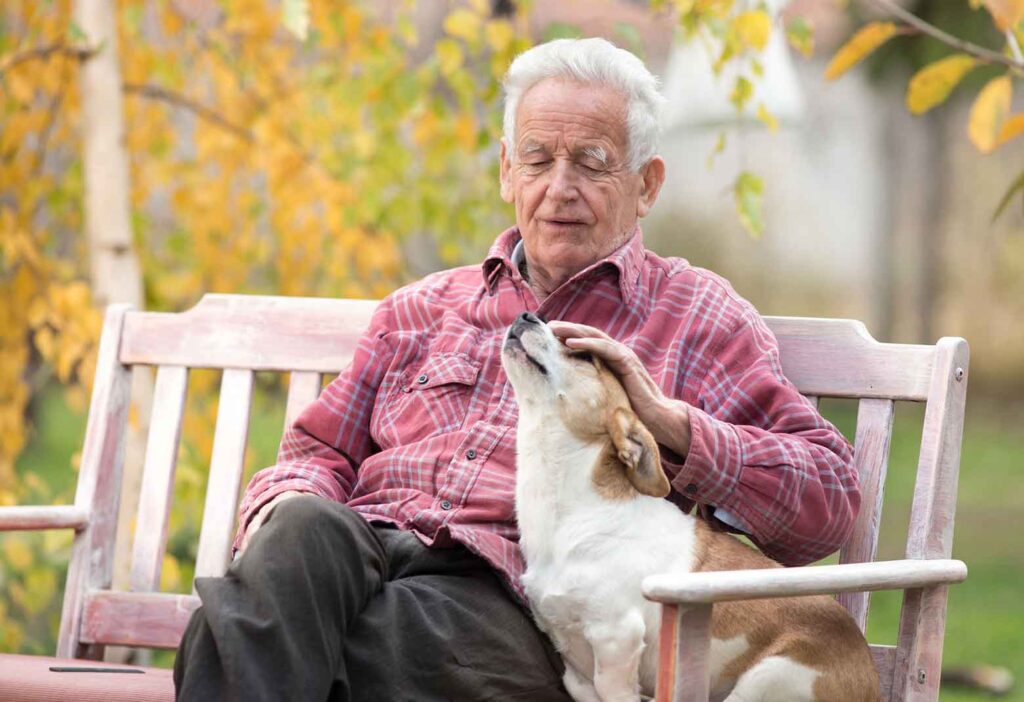Watching my dad and his dog, Daisy, bond has been one of the most heartwarming experiences of my life. When we first suggested getting a dog, my dad wasn’t so sure. “I don’t know if I can keep up with a dog,” he said. Fast forward a year, and Daisy is his constant companion—always by his side, whether he’s sipping coffee or taking his daily walk.

Dogs bring an unmatched sense of joy, comfort, and purpose to elderly parents. But, like any great friendship, their bond takes time, patience, and a little guidance. If you’re hoping to create that magical connection between your parent and a furry friend, here’s how to make it happen.
1. Start with the Right Dog
Not every dog is a perfect fit for an elderly parent, so choosing the right one is crucial. My dad wanted a companion who wasn’t too high-energy but still loved to play. After visiting a local shelter, we found Daisy, a gentle, 5-year-old Labrador mix. It was love at first sight.

When choosing a dog for your parent, consider:
- Energy Levels: Older dogs or breeds like Cavaliers, Pugs, and Labs tend to be calm and laid-back.
- Size: Medium or small breeds are easier to manage and won’t overwhelm your parent.
- Temperament: Look for a dog that’s friendly, gentle, and adaptable.
Adopting an older dog was perfect for my dad—Daisy came pre-trained, mellow, and ready to snuggle.
2. Make the First Meeting Memorable
When introducing your parent to a dog, make the moment special but not overwhelming. The first meeting should be calm, with no distractions or rushing. For my dad and Daisy, we brought her to a quiet park. My dad sat on a bench while Daisy wandered over, sniffed his shoes, and then gently leaned against him. That was it—they were inseparable.

Here’s how to nail the introduction:
- Keep the environment quiet and relaxed.
- Let your parent and the dog take things at their own pace.
- Offer treats or toys to create a positive experience.
First impressions are everything. If the meeting feels easy and natural, the bond will begin to grow right away.
3. Build a Routine They’ll Both Love
Dogs thrive on routine, and so do many elderly parents. Establishing a daily schedule creates a sense of stability and connection.
- Morning Walks: A short, easy stroll is great for both exercise and bonding.
- Mealtime Rituals: Encourage your parent to handle feeding—it’s a simple way to build trust.
- Evening Snuggles: Regular downtime, like cuddling on the couch, fosters emotional closeness.

For my dad, his morning coffee-and-cuddle routine with Daisy is non-negotiable. Daisy sits at his feet, and he gives her a little toast crust every morning—it’s their thing.
4. Make Care Easy and Enjoyable

Caring for a dog shouldn’t feel like a chore. Help your parent set up systems that make things simple:
- Pre-Measured Meals: Portion out food in advance so feeding is quick and stress-free.
- Low-Maintenance Grooming: If the dog has a short coat, regular brushing will suffice. For more grooming needs, consider a mobile groomer.
- Manageable Exercise: Choose activities that match your parent’s physical abilities, like short walks or gentle play sessions.
When care feels easy, your parent can focus on the joy their dog brings.
5. Encourage Gentle Play
Playtime doesn’t have to mean fetch marathons. Even low-key games or simple activities can be meaningful.
- Puzzle Toys: These keep the dog entertained while your parent enjoys watching.
- Tug-of-War: A soft tug toy is easy on older hands and gives the dog a chance to play.
- Interactive Games: Games like “find the treat” are fun and don’t require much effort.

I’ll never forget the first time my dad played tug-of-war with Daisy. He laughed so hard when she “won” that she immediately dropped the toy, as if to say, “Let’s go again!” Moments like that make all the difference.
6. Teach Communication
Dogs and humans don’t speak the same language, but they can learn to understand each other with time.
- For Your Parent: Teach them basic cues from the dog, like a wagging tail for happiness or a tucked tail for nervousness.
- For the Dog: Work on simple commands like “sit” or “stay” together. Seeing the dog respond will boost your parent’s confidence and deepen the connection.

With Daisy, my dad quickly learned her “I want to go outside” look—ears up, tail wagging, and a hopeful tilt of the head. It became their unspoken conversation.
7. Celebrate Small Wins
Shared celebrations create lasting memories. Whether it’s a birthday, a “gotcha day,” or just a sunny afternoon at the park, these moments strengthen the bond.
- Bake dog-friendly treats together.
- Take the dog to a new trail or park.
- Let your parent pick out a new toy or accessory for their furry friend.
For my dad, celebrating Daisy’s birthday was a highlight of the year. We got her a little cake, and the way my dad proudly took photos was like watching a grandparent with a favorite grandchild.
8. Watch the Friendship Bloom
Over time, the little moments add up. You’ll notice how much the dog brightens your parent’s day—whether it’s the way they eagerly wait at the door or how they gently curl up next to them during a nap.

For my dad, Daisy became more than just a pet. She’s his walking buddy, his TV companion, and his source of comfort on tough days. Watching them together has reminded me just how special the bond between a human and a dog can be.
The Magic of Best Friends Pets
Helping your elderly parent bond with a dog is more than just a gift—it’s a life-changing experience for both of them. The dog offers companionship, loyalty, and love, while your parent provides care, affection, and a sense of purpose. Together, they create a relationship that’s truly magical.

If you’re considering a dog for your parent, I can’t recommend it enough. The joy, laughter, and unconditional love that comes from having a furry best friend is something every elderly parent deserves.



